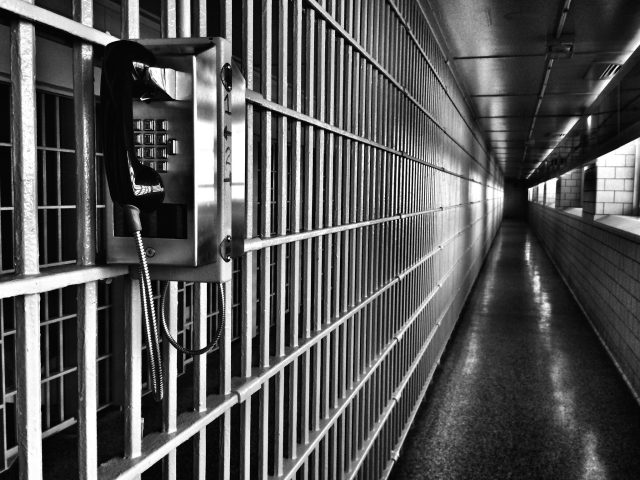
The phone companies and the FCC have different interpretations of a stay order issued on March 7. Prison phone companies say the court order should mostly preserve the status quo, while the FCC argues that the order lets it apply its existing caps on interstate call rates to intrastate calls.
Securus Technologies CEO Richard Smith filed an affidavit in federal appeals court yesterday, arguing that the FCC has misinterpreted the court order and that imposing the rate caps on intrastate calls will cause problems in prisons and jails. Under a heading titled "Jail Unrest," Smith's affidavit stated:
This chaos and confusion about what is the correct intrastate calling rate—and the only answer is that there is no federally mandated intrastate calling rate after the Court's March 7 Order which stayed all new rates—will carry over into correctional facilities themselves. Inmates will be angry if they believe that Securus is charging the wrong rates. There could be damage to Securus phones and equipment, as well as a threat to overall security and corrections personnel including inmates within the facilities. Having been in this industry for eight years, I have experience with jail unrest and I know that issues with the phones can trigger it.
The affidavit was part of an emergency motion in which Securus asked the US Court of Appeals for the District of Columbia Circuit to modify the stay order.
The debate involves two sets of rate caps issued by the FCC. The first, issued in 2013, were interim caps of 21¢ to 25¢ per minute that applied only to interstate calls, those that cross state lines. The second set of rate caps, issued in 2015, imposed limits of 11¢ to 22¢ to per minute on all calls, including both interstate calls and the intrastate calls that occur entirely within one state.
FCC commissioners say the price caps are necessary because the price of calls sometimes hits $14 per minute.
The March 7 stay halted implementation of the 2015 rate caps until the prison phone companies' lawsuit against the FCC is decided. But the judge's order also left the 2013 price caps in place, and it did not object to a change the FCC made to its definition of "inmate calling service." The new definition deletes the word "interstate."
After some legal review of the stay, the FCC decided that with its new definition it can apply the interim rate caps to intrastate calls. On Wednesday, the FCC issued a notice telling prison phone companies that it intends to do so beginning Thursday of this week. This was followed by Securus's emergency motion.
Prison phone companies Global Tel*Link (GTL) and Telmate filed similar motions.
"The FCC’s action violates the clear intent of this Court’s stay order—which was to prevent new and untested regulation of intrastate rates from taking effect," GTL wrote. While Securus asked for a modification of the original order, GTL said the court should simply "enforce its prior order by clarifying that none of the FCC’s rate caps may be applied to intrastate calls pending judicial review."
The court asked the FCC to file a response by Tuesday.
The FCC's 2015 order also put limits on certain ancillary fees related to inmate calls. The stay order did not affect those limits, which include $3 for making automated payments by phone or website, $5.95 for making payments with a "live agent," and $2 for "paper bill fees."
reader comments
122